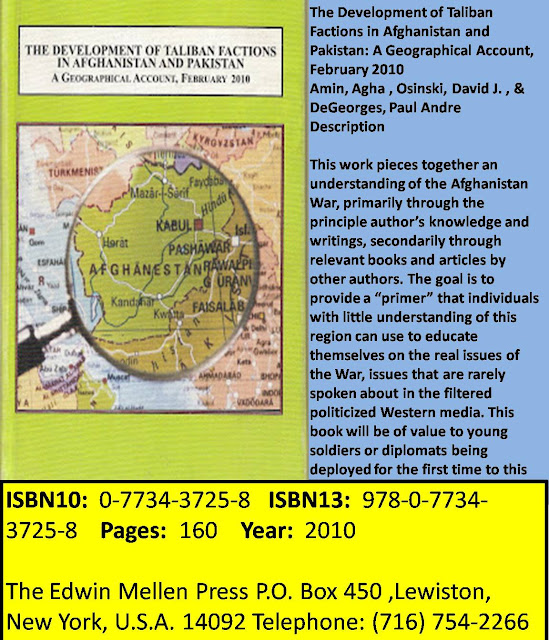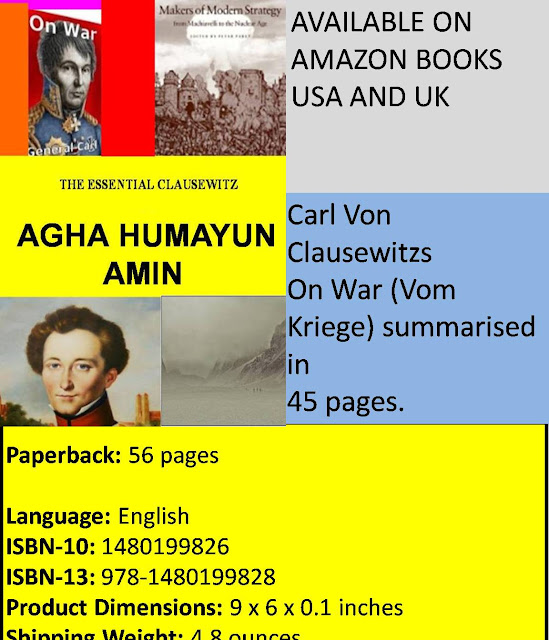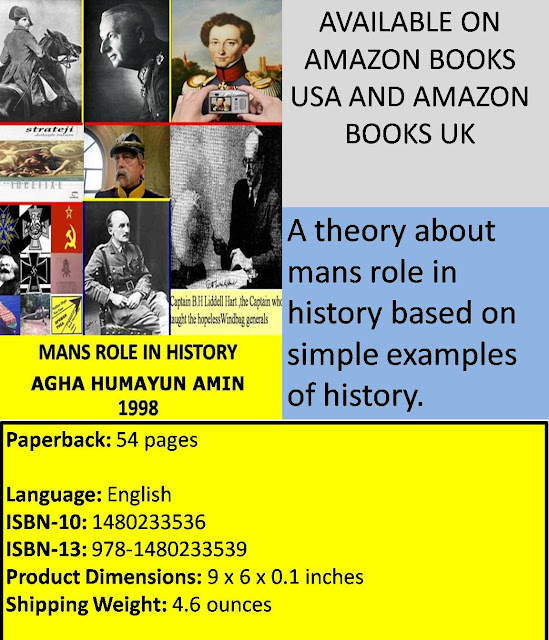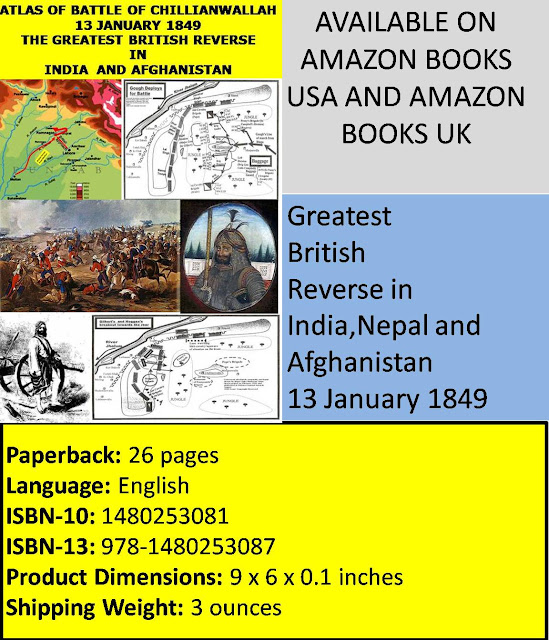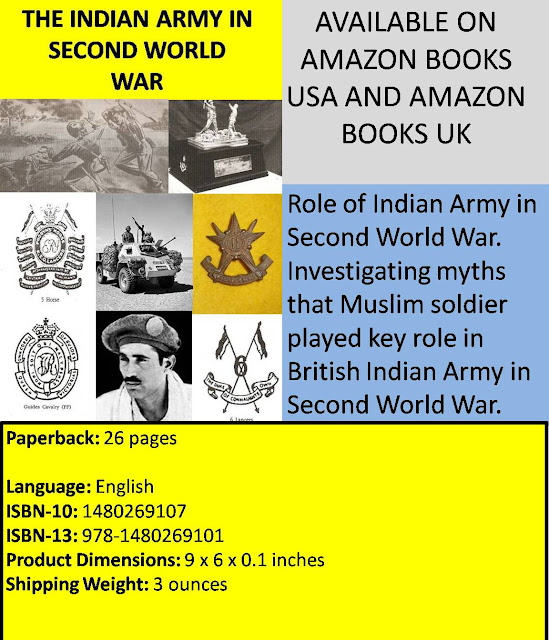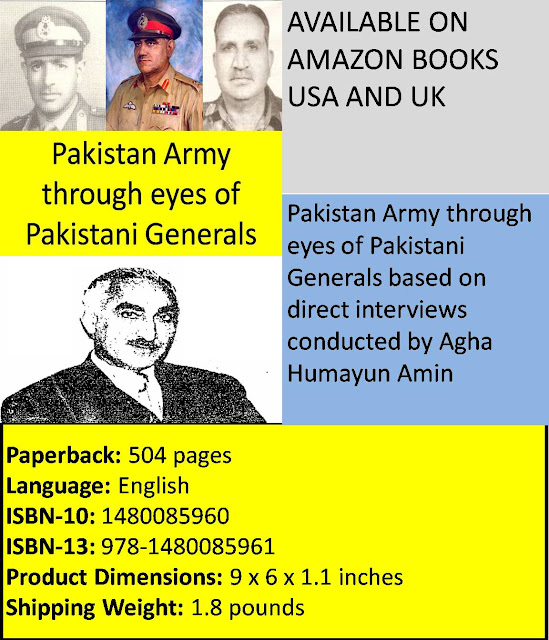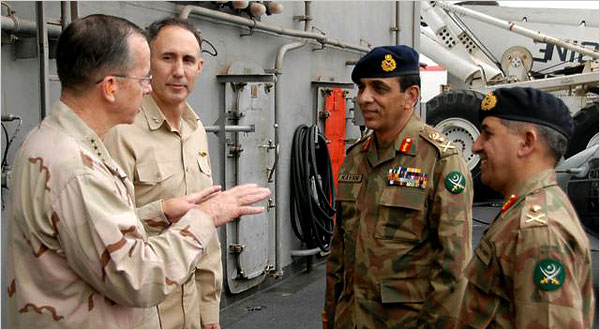Hagman Canada Free Press Nov 2012 Benghazi explained Interview with an Intelligence Insider
Benghazi explained: Interview with an "Intelligence Insider"
By Doug Hagmann (Bio and Archives) Thursday, November 29, 2012 | Print friendly | Subscribe | Email
Benghazi: Behind the scenes (Part II)
PART 1
This is part one of a multi-part interview with a government insider intimately familiar with the events that took place in Benghazi. In this part, he provides important background, and explains this administration is engaged in a massive cover-up.
DH: It's been a while since we've discussed Benghazi. What have you heard lately?
II: Before I answer that, I want to get a few things off my chest. Every politician, whether it's a congressman senator, diplomat, or their spokespeople and the media are lying to the American public every time they call the location of the attack a consulate. It was not. There was absolutely no diplomatic consulate in Benghazi. None. Words are important here. They can create a wrong image, an incorrect picture of what was really going on. The property where our Ambassador and other Americans were murdered was a rented villa consisting of a primary residence with a couple of outbuildings behind the actual house. The reason they're still calling it a consulate is to subtly divert any questions about our activities there.
DH: Let's go over this again; exactly what was taking place at Benghazi?
II: As I said, the place where the attack happened is one of the largest, one of the most active CIA operation centers in North Africa, if not in the entire Middle East. It was not a diplomatic station. It was a planning and operations center, a logistics hub for weapons and arms being funneled out of Libya. Unlike the embassy in Tripoli, there was limited security in Benghazi. Why? So the operation did not draw attention to what was going on there.
DH: So in reality there were no actual security issues?
II: Oh yes, there were, in Tripoli. Diplomatic cables show that. But it was for the embassy in Tripoli, the Ambassador and the diplomatic staff in general, not specifically for the Benghazi location for two reasons. First, the Benghazi location was a CIA operation, not a diplomatic one. Visible security at that location would draw unwanted attention there. They had to blend in. Remember, the villa was located in a somewhat residential area, sort of like the suburbs. Secondly, additional manpower was not needed there, at this CIA center, as the operation was already winding down.
DH: I know you've gone over this before, but let's get into the specifics of the operation at Benghazi.
II: Good, I want to be clear. After Gaddafi was taken out, there was the matter of his weapons and arms that were hidden all over Libya, including chemical weapons - gas weapons. According to Obama and Hillary Clinton, we were in Libya to collect and destroy these weapons to make for a 'safer' Libya. That's what they were telling the American public. That's not really what was going on, though, and it seems like all of the other nations except the average American knew it. Anyway, you can find pictures and videos of weapons caches being destroyed, but that is strictly for the public's consumption.
What was really happening, before Gaddafi's body was even cold, is that we had people locating caches of weapons, separating the working from those that weren't, and making a big show of destroying the weapons, but only the weapons that were useless. The working weapons were being given to Islamic terrorists. They were being funneled through Libya, crisscrossing Libya on a Muslim Brotherhood managed strategic supply route. In fact, Michael Reagan called it the modern day equivalent of the Ho Chi Minh Trail in a recent article he wrote, and he is correct.
The entire arms and weapons running operation was headquartered in Benghazi, The weapons were actually being shipped out of Libya from the port city of Dernah, located about a hundred miles east of Benghazi. That was the 'choke point' of the weapons being shipped out. Remember the Lusitania? Think in those terms, ships carrying weapons hid among 'humanitarian aid.' By the time of the attacks, an estimated 30-40 million pounds of arms were already transported out of Libya.
From there, the weapons were being sent to staging areas in Turkey near the Syrian border, for use by the Free Syrian Army and other ragtag terrorist groups to fight against Assad. The objective was and still is to destabilize the Assad government.
Why Syria, why not Iran?
II: It's both, but Syria is the primary target here for this operation. First, look at the bigger picture, look at the so-called "Arab Spring." Who benefits and by default, who doesn't? Who is the architect for what's going on throughout the Middle East and North Africa? Whose agenda is being implemented? To specifically address Benghazi, though, look at the bigger picture here and what is trying to be accomplished.
The Obama administration is playing the role of Saudi Arabia's private army. I think if Americans knew this, they would be outraged. Our service men and women are being sold out as mercenaries for the wants and desires of the Royal family, for the Saudi's interests. It's about religious dominance and oil. Who is really benefitting from, say, what's going on in Egypt? Mubarek is out, and the Muslim Brotherhood is in. Who does that benefit? Saudi Arabia.
Look at what we see happening in Egypt. Destabilization. Do you think the Russians want that? Hell no. Syria is Russia's red line in the sand, as you earlier wrote. If Syria is lost to the Muslim Brotherhood by the actions of Obama, Hillary Clinton and others in this administration, what happens? Well, it will have an adverse impact on Russia from a military standpoint. They will likely lose access to their Mediterranean deep water port in Syria, which is Tartus.
But think further - three dimensionally. Russia is still the world's largest oil producer, and that's Russia's primary source of income. Then there's Turkey, adjacent to Syria. A large amount of Russian oil and gas, consumed by the West, flows through Turkey, which is also a player in this operation.
So, the destabilization of Syria which is exactly what Obama and Clinton are trying to do, presents a direct military and economic threat to Russia. Assad at least has kept things in check in Syria. Can you imagine Assad being replaced by someone like Morsi? That would strike at the very heart of Russia's economic health and military capabilities. Think of what's at stake here. Do Americans want a regional war? World War III? Has Obama or Clinton asked the American people if this is what they want?
Make no mistake, we are doing the bidding for Saudi Arabia. The U.S., NATO and other allies are engaged in a proxy war with Iran and Russia.
What about Assad's war crimes?
Assad is no angel, but don't be fooled by the death toll attributed to him. Now this is important. Remember the first Gulf War? In the run up to Desert Storm, a young woman testified before the Human Rights Caucus - she only testified under her first name, which was Nayirah. Remember that she testified that Iraqi soldiers were taking infants from incubators in Kuwait, leaving them to die? Her testimony was supposedly confirmed by Amnesty International. Her testimony went viral, and every war hawk in the U.S. government cited her testimony, saying we needed to right the wrongs, the inhumanity. It was all one big lie!
After Desert Storm, it was revealed that Nayirah's last name was Al-Sabah, and she was the daughter of the Kuwaiti ambassador to the United States. Her testimony was part of a publicity campaign organized by Citizens for a Free Kuwait, which was run by Hill & Knowlton, a PR firm out of New York. People must learn the back story.
So we see a body count attributed to Assad. Who's doing the killing, Assad's people? Maybe at times, but the Free Syrian Army and other groups are doing most of the slaughter. It's one huge 'false flag' operation and the media is selling it hard. And Americans are buying it, just like the testimony of the girl from Kuwait.
It's one big lie being told by Obama, Clinton, Rice, and others. Many Americans are buying the lie, and the media is selling the lie. The people behind this are laughing at us. Don't you get it? They're laughing at us.
And do you want to know what's at stake? Four Americans were killed in Benghazi. Forty thousand have been killed so far in Syria. Tens of thousands of Syrian people have become refugees. Why? For what? To advance the agenda of Saudi Arabia. For oil.
You know, the so-called right wing establishment were all up in arms about Obama's submissive bow to the Saudi King. Where are they now? Where's the outrage that the body count will be much greater than Forty thousand? It is anticipated that if the Obama plan succeeds, not only will America be committed to yet another war, but the body count
could be as high as FOUR MILLION. Christians, among others, will be slaughtered. This could trigger a third world war, it's that serious.
What are Russia and Iran doing? Certainly, they must be fighting back.
Benghazi was a strike against us, the Obama-Clinton agenda. A visible strike, and I'll explain more about this shortly, because there are events I will point out that will put it all into perspective. But think of it this way. How did we successfully collapse the Soviet Union? I mean, what was the last straw? We attacked their currency - the Ruble. They're still stinging from that, and Putin was in the KGB at the time. Do you think he forgot about that?
So, how do, or will Russia and Iran strike back if Obama and Clinton continue this insanity? Militarily? Possibly in regional conflicts, but to take us out, to stop us, what is the one area where we are very vulnerable? It's our economy - our dollar. What's our dollar tied to? Not gold or silver anymore, and some say it's not tied to anything. Well, that's not quite correct. It's tied to OIL. The free-flow of oil.
Oil transactions everywhere in the world, including Russia and China, are made with U.S. dollars. We buy their oil with our dollars, and they return with those same paper dollars and employ Americans by buying our goods and services. As Michael Reagan wrote: "[t]his system is also crucial to the security of our diplomatic and legal infrastructure, which is ultimately backed by our military. It's the core of our foreign policy." He also wrote that "any attack on the free flow of oil is an attack on the dollar. Any attack on the dollar is an attack on our ability to project power and protect Western democracies, economies, and ideals. God have mercy on us all if that attack is successful!"
Tomorrow Part II
Benghazi: Behind the scenes (Part II)
By Doug Hagmann (Bio and Archives) Friday, November 30, 2012
Author's note: This is part two of a multi-part interview with a government insider intimately familiar with the events that took place in Benghazi. It is important to note that the information contained in this series was developed from interviews that spanned over 100 hours. In this part, the insider provides information about the events of the attack and the continuation of the cover-up at the highest levels of our government. (For Part I, please click here).
We've heard different accounts and different timelines concerning the attack at Benghazi. What exactly happened?
First, people must understand that the compound that was attacked was situated in a somewhat rural area and was not a consulate, but a rented villa, or a residential structure. The residence was the primary building, and what has been referred to as the annex was located about 1800 feet away as the crow flies, but just over a mile to travel by road. And again, visible security was not present as the compound was the headquarters for a covert operation. No one wanted to draw attention to what was taking place at this location.
The first indications of problems there began at least twelve-(12) hours before the first shot was even fired. One of the men at the compound observed a policeman or Libyan security officer taking photographs outside of the villa. Keep in mind that Ambassador Stevens, the point man in this Obama-sanctioned weapons running operation, was hastily scheduled to meet with the Turkish consul general at this location. The meeting was deliberately planned for dinner time, toward evening, when the events that happened next could be performed under the cover of darkness.
It's also important to consider the location of this meeting. Tripoli is the seat of power in Libya, and a genuine diplomatic meeting could more safely have been conducted there, at the embassy. Also, what most people don't know is that Libya is split, much like East and West Germany before the wall. The eastern part is more closely aligned with the Muslim Brotherhood, the same group that controls Egypt. The Turkish consul general had to meet there, not just with Stevens but with other factions involved in this covert operation.
Now I'll digress for a moment. It is reasonable to ask whether the Turkish consul general was setting Stevens up for a hit, like a classic mob-style hit. First, there is no dispute that there was surveillance done at 6:30 a.m. and intermittently throughout the day. Next, consider that three hours before the first shot was fired, about 6:30 p.m. local time, some strange things were observed taking place near the compound. Military type vehicles began closing of the streets with trucks that had 50 caliber guns mounted on them. Checkpoints on the streets and at intersections were being quietly closed off around the compound. Nearby residents began going inside their homes. Anyone walking in the area got off
the streets, like a scene from a movie in the Godfather series. It was obvious that the stage was being set for a strike against the compound. This alone reveals preplanning and coordination.
It's also noteworthy to point out that the Turkish counsel general most likely passed through one or more of these checkpoints, or at least would have noticed that things were not right in the area. You must remember that just as Stevens was previously CIA working under diplomatic cover, the Turkish counsel general was his counterpart. It's typical spy-versus-spy stuff.
Also consider this. One of the men stationed at the compound, a British national, left the compound at about 9:20 p.m., reportedly to get more phone cards. That's right, phone cards, like you would buy at Walmart. Why? Because the men at the compound ran out of minutes. Just who do you think they were talking to that day to burn through the minutes, and why do you think they needed them at that exact time?
They were using the phones as a last and perhaps only line of communications to provide assessments of the strange things going on earlier. They knew that something was being planned and they were conveying that information - their observations to those who could assist them, in Tripoli and DC.
Based on these activities, it is clear that the men at the compound suspected that they were in trouble long before the first shot was ever fired. They were calling anyone who would listen, or who should have listened. We knew trouble was brewing and no one responded in any meaningful way.
Could the man who left to buy more phone cards have known what was about to take place?
Well, it's possible, but there is no indication of that.
Was the Turkish counsel general in on this, to set Stevens up?
Well, what have we heard from our government? Has anyone even bothered to interview him? What did he say? Don't forget, this administration decided to handle this attack as a crime and not a terrorist attack. How long did it take for the FBI to be able to access the 'crime scene' after the attack? More importantly, what was left at the 'crime scene' to examine by the FBI due to this delay? Do you think the delay was accidental?
Do you know what was discussed, or the reason for the meeting between Stevens and the Turkish consul general?
Yes, I know some key points. First, keep in mind what this arms running operation was all about. It was to topple Assad and replace him with a Muslim Brotherhood leader. It was to destabilize Syria to advance the agenda of Saudi Arabia. They were using U.S. and NATO forces to do exactly that.
However, Assad is no Gaddafi, and there is no comparison between Assad's army and the Libyan army. It would take much more than rebels inside Syria to topple Assad. There is no way on earth that the Syrian rebels, or Free Syrian Army, has the capability to accomplish this objective alone. It required U.S. assistance, arms and training.
Now, Turkey is a NATO ally. They were assisting the Obama-Clinton-Saudi plan to funnel weapons ultimately to Syria, but the primary staging areas for these weapons were in Turkey near the Syrian border. Visual surveillance by Russia, using satellites and other means amassed photographic documentation of the U.S. assisting the 'anti-Assad rebels' inside Turkey. They developed evidence of the U.S. training these rebels and assisting them into Syria to fight against Assad.
Think about this. What if surveillance images observed anti-Assad rebels being trained to handle and mount chemical weapons - gas shells - onto rockets? The process would be apparent and would obviously be detected by a number of visual indicators. Obviously, Syria wanted this to stop. By extension, so did Russia.
One aspect of the weapons plan was to set up a false flag operation to make it appear that Assad used chemical weapons against his own people. Imagine the outcry from the civilized world to the news that Assad 'gassed' his own people. That would be an invitation to NATO and the West to openly intervene. Don't forget about the timing of all of this. Two months before the elections, and time was running out. The job of taking out Assad was not yet complete. Such an event would quickly advance this agenda. By this time, however, being caught and placed in a rather unenviable position between Russia and the U.S., the Turkish consul general was in a 'CYA, clean-up' mode, assuring that none of the chemical weapons that might have still been in Libya were headed for Turkey.
It is also important to understand that the covert weapons running operation was just about finished. An estimated 40 million pounds of weapons were already shipped from Libya, and things were winding down.
There was another issue as well, a very important and telling one. Seven members of the Iranian Red Crescent had been kidnapped or snatched from the streets of Benghazi on or about July 31, 2012. Again you must understand that virtually anyone walking on the streets of Benghazi not indigenous to the area are spies. Covert operatives, operating under various covers. From all nations.
Along with the message that the weapons running operation was compromised, the Iranians had good reason to suspect that the 'Red Crescent workers' were snatched by the CIA or with their assistance. Iran wanted them back. They were spies, and countries want their spies back! So part of the meeting was to address this, as there was pressure by Russia against a wavering Turkey to switch sides. Anyway, you'll see how this ties in to the way the actual attack was executed.
Please continue.
So at 9:30 pm local time, the compound began to take on small arms fire. Based on all reports I've reviewed, there were three twelve-man attack teams armed with small arms, RPGs, and other sophisticated military style weapons. These were not run-of-the-mill street weapons, but military issued type weapons. The types of weapons alone scream that this was a preplanned attack.
Eyes on the area [author's note: satellites, surveillance drones] confirmed that two of these teams surrounded the villa and the annex. The third team was elsewhere, lying in wait. The two teams began their assault on the compound where Stevens was inside about an hour after the Turkish counsel general left. Remember, he had to pass the checkpoints after the meeting. Just keep that in mind.
Anyway, we all know now that there was an intense firefight that lasted nearly nine hours during which four Americans, Ambassador Chris Stevens, Sean Smith, Glen Dougherty and Tyrone Woods were killed. And of course that attack was not over a video and there were no protests before the attack.
Now there are questions that are not being asked. The two well-armed 'hit teams' had the capability to reduce the compound and annex to rubble quickly. Why a protracted firefight? There are a couple of reasons.
First, what was the makeup of the 'hit teams,' or who were the attackers? We have verified that the attackers were a combination of members of Ansar al Sharia and Al-Qaeda in the Islamic Maghreb (AQIM), but they were operating under the flag of Ansar al Sharia. Who is Ansar al Sharia? Iranian terrorists. They are a terrorist group that receives their training by and funding from Iran. Now think about this. Carefully consider the implications here. IRAN. It's the elephant in the room no one wants to mention or talk about.
The attack on our ambassador and our people - Americans - was an attack by Iran. It was an attack at a nation-state level.
AQIM also assisted. They are indigenous to Africa and are extremely dangerous. AQIM is a very 'elite' and extremely well-funded group, and very limited in number. Our last assessment suggests that there are only 400 or so members, but they are very influential across Africa and into South and Central America and Western Europe. Their importance and relevance will become evident shortly.
The reason that they did not just take out the compound and everything and everyone in it is that they were looking for their spies. Remember the Red Crescent workers? The Iranian spies? They suspected that they might be held at the annex. As such, they wanted to free them and did not want to risk killing them.
Oh, and there were others 'missing' as well. AQIM members. These were terrorists involved in drug running operations from the Tri-border (TBA) areas of South America through North Africa and into Western Europe. By the way, this is the way they made their money. Drugs sell at higher profits in Western Europe than elsewhere, so there is money to be made. The problem is that some of them got caught—snatched up in Benghazi and northeastern Libya.
Now regarding AQIM, this has a direct connection not only to South America, but also to Mexico and Mexican drug gangs. You think that what's going on in Libya is just 'over there,' and far away from the U.S. and has nothing to do with our safety and security? Think again, but more on this in a bit.
There's also another reason. The hit teams fully expected rescue teams from the U.S. to be dispatched to the compound. Certainly, calls for help went out. By waiting for the back-up or rescue forces, a surprise assault by the other 'hit team' team would have exposed our forces to possible causalities and turned the event into a much bigger event where the actual nature of the operation could be exposed to the world. Instead of being a cover-up for which they have yet to be held accountable, it would have been an international incident that would have exposed the entire affair.
So the Ansar al Sharia attack groups deliberately conducted a protracted assault on the compound. Just imagine, our men and even the bad guys never expected team Obama would leave our people twisting in the wind, fighting for their lives. That alone should speak volumes to every American.
As daylight approached, they had to wrap things up so they could disappear under the cover of darkness. Oh, and the crowds that are often cited by this administration, did form in the area as the attack progressed, much like a growing mob in riot. They provided the fog, or the cover, that permitted the attackers to escape amid the crowd.
You mentioned the missing Iranian Red Crescent workers and members of AQIM. Were they ever released or found?
Yes, and this is an extremely important part of this entire story. This reaches into the highest levels of our government. This is so very important that it must be addressed separately.
So the attack was first and the crowd came later. I noted that the administration said that there were protests going on at the Embassy in Cairo at the same time and they compared it to Benghazi.
Yes, that's their cover story and they know that there is absolutely no comparison. This is one huge lie that is easily addressed and put out of its misery.
How soon did U.S. intelligence officials know who was responsible for the attack?
Almost immediately, if not concurrent with the attack. Every part of that area is under active aerial surveillance by the U.S. There was SIGINT or communication intercepts at the time of the attack. Then, there was even an admission by the attackers. Obama knew. Hillary knew. Clapper knew. Everyone knew, expect the American people. And you know what? The American media knew as well.
I heard a statement that they did not admit knowledge to avoid alerting the perpetrators.
Yes, it was said that Rice and others did not want to alert the 'bad guys' or tip their hand or some such nonsense, but did that mean that Susan Rice, for example, had to appear on national television and lie to every one of us, to the country? In my opinion, Rice took on the temporary job of propaganda minister for a day in exchange for a shot at Secretary of State in the future.
You are painting quite a dire picture.
It gets worse, much worse, and it involves real threats across the globe and even to us here in the United States. But it's all because of our actions, the covert weapons running from Libya to Syria by way of Turkey at the direction of Barack Obama and his Saudi 'handlers.'
FORTY THOUSAND men, women and children are dead in Syria as a direct result of this attempt at nation building, or tearing down Assad. There are four dead Americans. We are arming some of the very people who are killing our troops. Not only are we on the wrong side of this, we are actively pushing the world to the precipice of World War III.
We are engaged in a real war here with Iran and Syria and by extension, with Russia and China. And we are being lied to about it every step of the way. And the lies are getting worse, but so are the attempts to stop the truth from getting out.
What do you mean?
What do you think the recent directive issued by Obama, the one you wrote about 'insider threats,' is all about? Obama does not want the American people to know the truth about what is going on. He's doubled down to stop leaks, like this. But you know what? He just might be too late, because we're not done here. I'm not done talking, and there's much more that needs to be exposed.
Copyright © Douglas J. Hagmann and Canada Free Press
Douglas J. Hagmann and his son, Joe Hagmann host The Hagmann & Hagmann Report, a live Internet radio program broadcast each weeknight from 8:00-10:00 p.m. ET.
Douglas Hagmann, founder & director of the Northeast Intelligence Network, and a multi-state licensed private investigative agency. Doug began using his investigative skills and training to fight terrorism and increase public awareness through his website.
Older articles by Doug Hagmann






























 KHAR: Security forces on Monday carried out bombings on militant hideouts situated in Bajaur Agency region.
KHAR: Security forces on Monday carried out bombings on militant hideouts situated in Bajaur Agency region.














